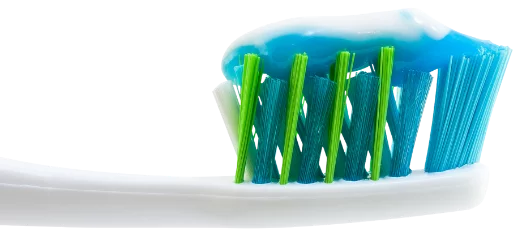frequently asked questions

We understand that dental emergencies are urgent and can be very stressful, so we will try our hardest to fit you in. Please give us a call at 661-251-2002 and we would be happy to help you.
No dental insurance? No problem! We offer flexible financing options and a dental plan customized for your needs. The Smile Generation Dental Plan is a discount dental plan that can help you save 20-50% on most treatments. Click here to learn more about the financing plans we have.
We have made it easy and convenient for you to see how much is owed on your bill through our patient portal Smile Generation MyChart. To learn more, visit our patient portal.
If you are ready to pay your bill, you can also visit https://www.smilegenerationmychart.com/MyChart/Billing/GuestPay/PayasGuest
Smile Generation Financial is a great dental financing option that can be used with or without your dental insurance to help you take care of your oral health. Enjoy 18 months of special financing on purchases of $500 or more made with your Smile Generation Financial Credit Card. Visit the "Payment" page to learn more and apply today.
The amount that your dental insurance will cover on your treatment depends on your insurance policy. We recommend call your insurance provider to learn more.
We offer flexible financing options and a dental plan customized for your needs. We gladly accept major credit cards, debit cards, mobile pay, and most insurance.
We understand that dental care can be expensive and an unplanned expense. It is important to us to help make sure your dental care fits into your budget and life. We offer many financial options such as the Smile Generation Dental Plan, in-office financing, and third-party financing such as Smile Generation Financial, CareCredit, and more.
Yes, we do accept CareCredit! Please visit the "Payment" page to learn more about your options.
Yes, we do have a payment and billing portal! You can view your account and pay your bill online at https://pay.wellfit.com/
We're excited to meet you! For your first appointment with us, please bring a photo ID and your dental insurance card (if available). If you are under 18, please come with a parent or legal guardian. We look forward to seeing you soon!
Please check out the Home Page of our website to see our most updated hours to see if we're open late and or on weekends.
We might have same-day appointments! Feel free to check our online scheduler to book your dental appointment online, or give our office a call to see if we can get you in on the same day.
We might take walk-ins! Feel free to check our online scheduler to book your dental appointment online, or give our office a call to see if we can get you in on the same day.
We would be happy to help you to transfer your files from another office. Please call our office at 661-251-2002 and we would be glad to assist you.
Absolutely! We are always welcoming new patients. Our dentists and office team are excited to meet you and address your dental needs.
We strive to deliver a perfect patient experience each and every day. Please check out our Google and Yelp pages to read our patients' online reviews.
We understand things come up and plans might change. If you need to reschedule or cancel your appointment, please call our office at 661-251-2002, and we will be happy to help you.
Using our secure patient portal Smile Generation MyChart, you can update personal and insurance information, complete your health history, and sign any needed consents from the convenience of your own home prior to your appointment.
If you are new to Smile Generation MyChart, it’s a 3-step process to set up your account using the activation email from Smile Generation, log in to Smile Generation MyChart, and click on eCheck-in to complete the needed items before we see you.
If you already have a Smile Generation MyChart account, simply log in from the Patient Portal page or SmileGenerationMyChart.com within 30 days of your next appointment and select eCheck-in.
Absolutely! Click here to schedule your appointment online today.
Yes, we do have a New Patient Special! We have a $59 New Patient Special that includes a comprehensive oral exam, x-rays, and a cleaning in absence of periodontal (gum) disease.
Currently, Internet Explorer does not support MyChart so any other web browser can be utilized.
If you are having errors logging into your MyChart, click on "My Patient Portal" on the navigation and input your credential from that screen.
Please refer to our Privacy Policy page.
The health history (eCheck-in) is available 30 days before your appointment. Click on the link to watch a tutorial video on completing your Health History information.
To access your child's MyChart account, make sure that you are using your name and date of birth and not your child's. Once you're in you should be able to access your child's MyChart.
To gain access to your child's MyChart account if you are not a patient, call our office so that we can give you access.
To link your medical Mychart account with Smile Generation MyChart account click on the link and watch our tutorial video.
We are happy to provide you with your dental records upon your request. Please call our office at 661-251-2002, and we would be glad to help.
Yes, you can absolutely message your dentist! You can message your dentist directly through your MyChart patient account.
We would be happy to assist you with updating your health history at your next appointment with us. We look forward to seeing you then!
Resetting your password with Smile Generation MyChart is easy. Simply select Forgot Password? from the Patient Portal page or smilegenerationmychart.com.
You will be asked to enter your MyChart username, date of birth, zip code, email address, and then an activation code will be sent to you via email.
Follow the prompts to enter your activation code and create your new password.
To request a new activation code for Smile Generation MyChart, give us a call at 661-251-2002 and we’ll be happy to resend your activation code via email or text.
If you haven’t received a MyChart activation code yet, please visit https://www.smilegenerationmychart.com/ to request one.
The simplest way to create a Smile Generation MyChart account is to start by scheduling an appointment. Along with your appointment confirmation email, you'll receive an invitation email with instructions for activating your Smile Generation MyChart account.
If you're not quite ready for your next appointment, but would like like to activate your account, visit https://www.smilegenerationmychart.com/MyChart/Signup to request an invitation email.
The Smile Generation MyChart app is available in the app store.
Download at: App Store | Google Play
Visit our expansive FAQ page on our SmileGeneration website to get all your dental questions answered. From what to do in an emergency to why are your gums bleeding, and more. Click on the link to learn more.

Need Answers? Call Today
We're Here for You
Call us for personalized assistance and answers to your care questions. Your comfort is our priority, and we’re just a phone call away. Let’s make sure you have all the information you need for an easygoing and enjoyable dental visit.
